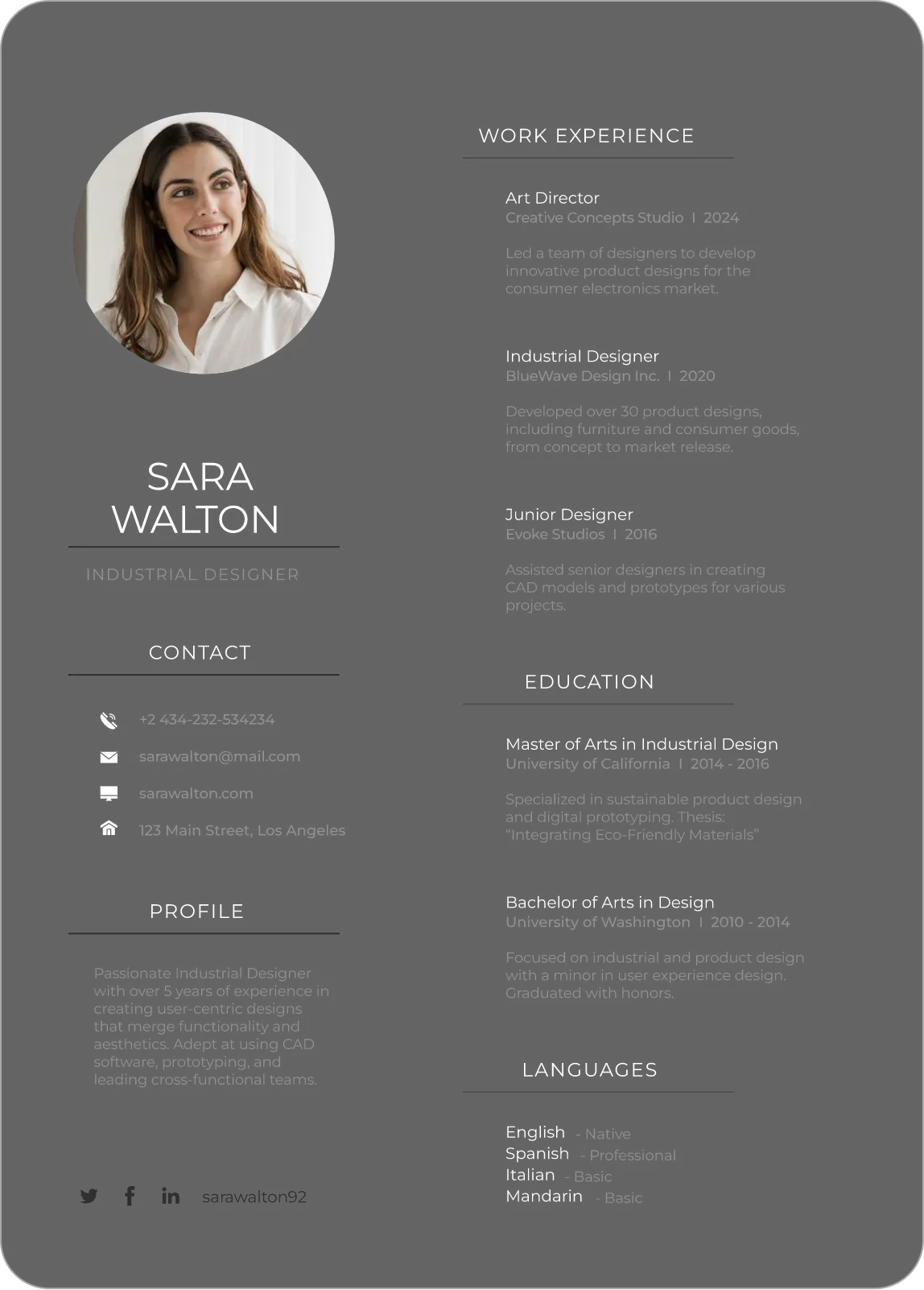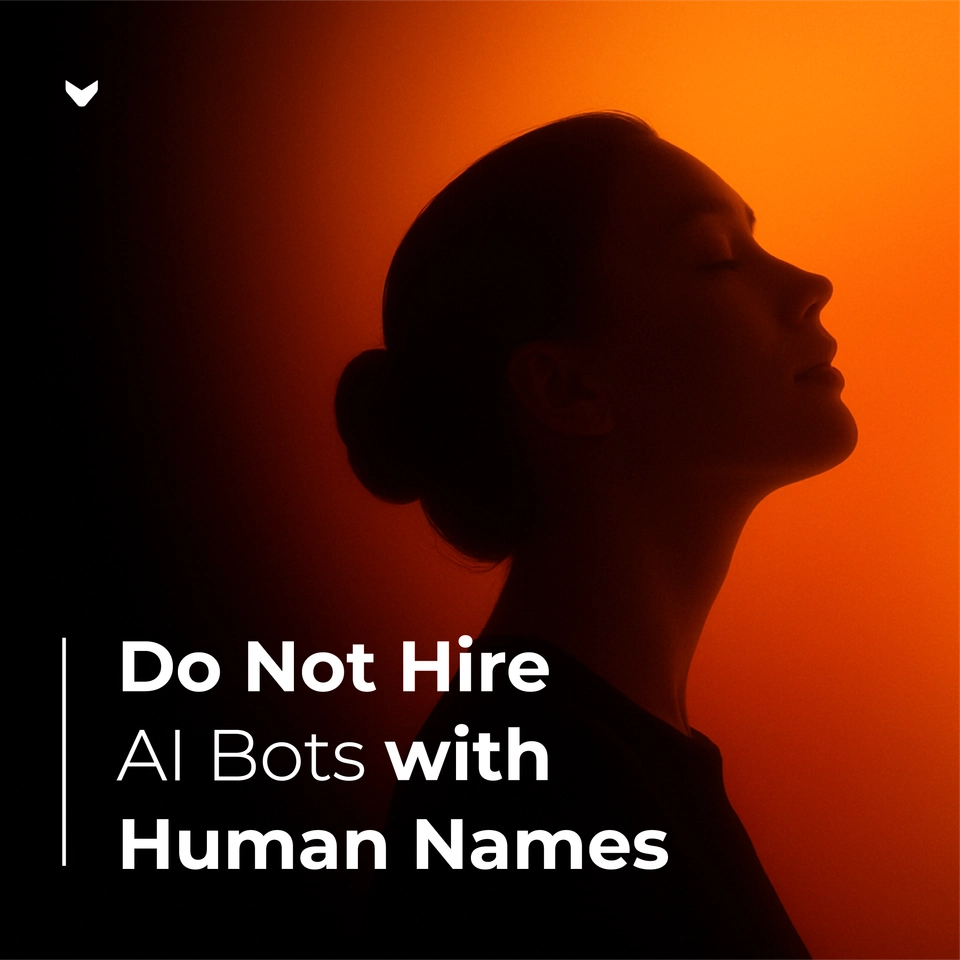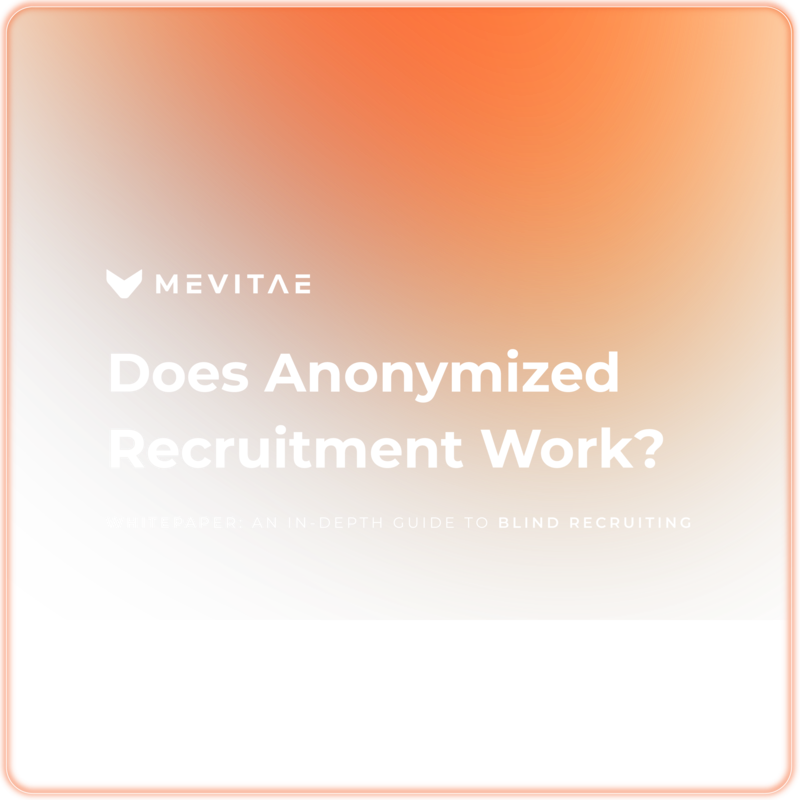The Gold Standard in Anonymized Recruiting
Blind recruiting
Chosen by you, redacted by us. Redact over 26 parameters with 95% accuracy directly within your ATS/HCM. Use the global leading anonymization tool in the market for a fairer talent acquisition process.
Experience the difference
Click on the options to see how redactions remove identifiers

Integrate and Redact. Accelerate Your Process Today
Effortless Sync
We work with 20+ HR systems, tailoring our solution for seamless integration and instant impact, wherever you are, we’ve got it covered. Let's talk today and get started!
Every Click Counts
95%+
Accuracy
Without losing document context
50+
Document Formats
Redaction available in all layouts
50+
Languages
Global redaction for global teams
90%
Faster than manual
Fastest solution in the market
Frequently Asked Questions
Does blind recruiting just shift biases to interviews?
This is to a certain degree a valid concern, as some information concealed during screening may become evident at the interview stage. However, unconscious biases are far more prevalent and impactful in the initial screening phase prior to shortlisting for interview, due to much shorter time constraints for reviewing each application. With a high volume of initial applicants and lacking ample time for rational reflection, reviewers at the screening stage are forced to make hasty decisions influenced by unconscious biases. Interviewers of shortlisted candidates, however, have more time to think more critically about each candidate and generally benefit from more familiarity with the role at hand. While some biases may persist at interview, interviews allow more time to reflect, recognize and consciously correct unconscious biases. Moreover, added measures like diverse interview panels and structured interview processes can further mitigate any biases persisting at the interview stage.
Is blind recruiting effective in reducing biases?
Yes. Studies have shown that blind recruiting raises the interview invitation rate for underrepresented groups. MeVitae has helped organizations achieve increases in gender and ethnic diversity of over 50%.
How long does MeVitae’s solution take to process applications?
MeVitae can redact 32,000 documents in just 600 seconds. This automated process reduces the manual effort significantly, saving your recruitment team countless hours while speeding up the screening process.
Does blind recruiting aim to secure those from underrepresented groups roles?
While blind (or anonymized) recruiting does indeed tend to increase diversity and representation from underrepresented groups, its core function is to select the most suitable candidates based on their skills, qualifications, and abilities, irrespective of their background. By eliminating biases related to factors like age, gender, and ethnicity during the initial screening, blind recruiting ensures a fairer evaluation process where candidates are assessed on their merits.
Can redacting documents negatively affect a company’s culture fit assessment?
Redacted background information, such as a candidate's age and gender, offers limited insights into character and personality, therefore exerting minimal influence on cultural fit assessments. It's worth noting that the anonymization process is primarily conducted during the screening stage, where biases are often more pronounced. The interview stage, with direct interaction and meaningful conversation, provides a better opportunity to evaluate a candidate's alignment with the company's culture and values.
Beyond helping select candidates based on merit, does MeVitae’s blind recruiting work to increase diversity?
Organizations using MeVitae’s Blind (Anonymized) Recruiting solution have reported an increase in diversity metrics within their organization by over 50%. MeVitae’s Fairness Lens solution can measure the impact of blind recruiting and any other interventions. Furthermore, the scientific literature substantiates these positive results.
Are there any studies on the effectiveness of blind recruiting?
Over the past two decades, a range of research has investigated the effectiveness of blind recruiting. Notably, Mariannae (2007) observed that blind recruiting balanced the interview invitation rate between foreign and native candidates, leading to comparable job offers. Additionally, Aslund and Skans (2012) found that blind recruiting elevated the interview invitation rate for females from 16% to 38%, aligning it with the rate for males (38%). For further details, refer to our most recent white paper!
What parameters are most commonly redacted?
Personally identifiable information, ethnicity, sexuality, disability and religion.
How fast is your blind recruiting solution?
It takes more than 5 minutes to manually redact one document and 8 hours to redact 100 to mitigate bias in the screening process - MeVitae can redact 32,000 documents of any kind in 600 seconds.
Can the anonymized applications be reverse engineered?
No. The redaction doesn’t just ‘blank out’ the words, phrases or sentences but also replaces the word under the redaction so it cannot be detected.
Can I select which job roles are anonymized?
Absolutely, and that’s not everything, you can also choose what bias parameters are used per role. For instance, for sales roles you may want gender to be redacted from CVs, whereas for customer service roles you may want all 26+ bias parameters to be anonymized from candidate CVs/cover letters, Diplomas, Certificates, etc.
Does it matter how candidates are sourced?
No. We can redact documents regardless of how they were sourced. E.g., LinkedIn or direct applications.
What file types does MeVitae’s blind recruiting work on?
MeVitae can anonymize multiple file formats including but not limited to docx, doc, pdf, rtf, odt and txt. Do you not see your files format here? Contact us as the solution will be tailored to your needs.
Does everything run through our ATS/HCM?
Yes. There should be no need for you to leave your current set up with your ATS/HCM. We pride ourselves in making it a streamlined process for all our clients.
FAQ
Transform Your Hiring with Blind Recruiting Today!
Join the ranks of forward-thinking companies that are already ahead of the curve by adopting anonymized recruiting practices.







